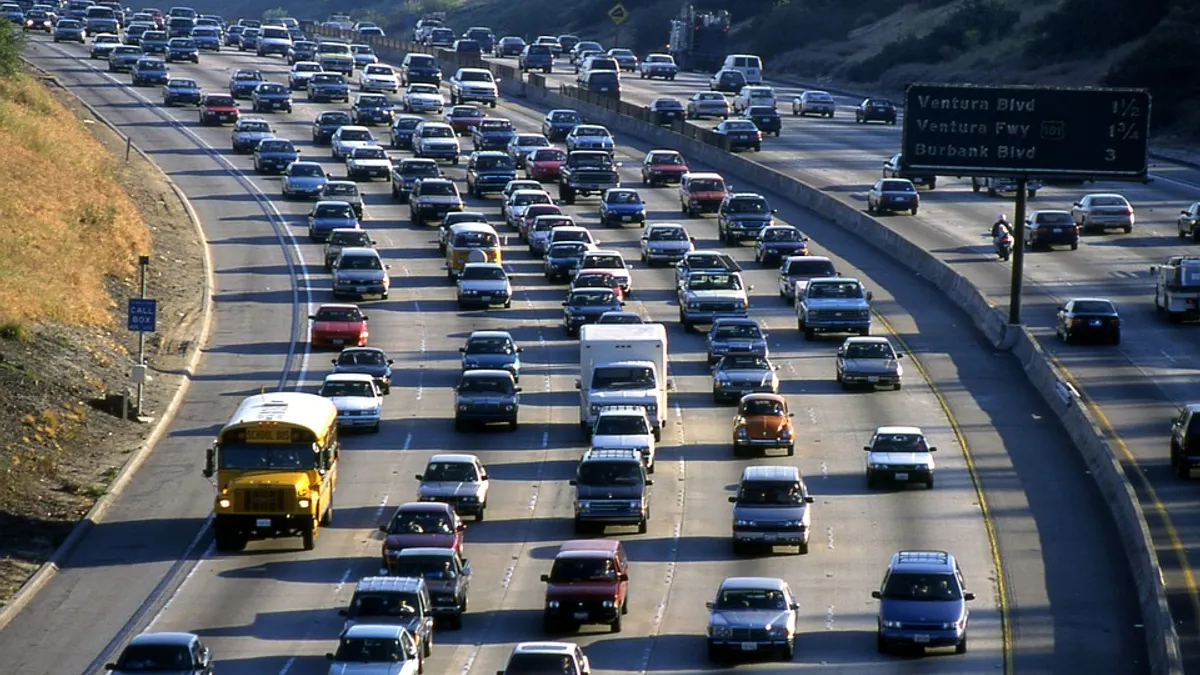Dive Brief:
- Los Angeles is the latest city to consider a minimum wage for ride-hailing drivers under a plan that went before the city council last week. The legislation, led by Council President Herb Wesson, would institute a $30 an hour minimum wage, of which at least $15 would cover pay and at least $15 would cover expenses like gas, car insurance and maintenance.
- In his motion for the bill, Wesson argues that ride-hailing is "subverting city policies put in place to protect the most vulnerable members of our community and weakening our social safety net." He said it builds on the minimum wage passed in New York City last year of $17.22 an hour, and will be indexed to the consumer price index in the Los Angeles metropolitan area.
- The proposal is in the initial stages of discussion, with council members set to ask for an independent study of the average wage and expenses for drivers in Los Angeles.
Dive Insight:
This legislation puts Los Angeles alongside peers New York City and Seattle in considering a minimum wage for ride-hailing drivers, although the proposal is less wide-ranging than the plans elsewhere at this stage. Seattle Mayor Jenny Durkan's proposal for the country’s first Driver Resolution Center to give drivers independent representation in disputes with the companies, is one of the more ambitious aims to emerge from this spate of regulation.
The companies are already concerned about the study and the proposed minimum wage. An Uber spokesperson told LAist they are worried the study will be based on "potentially false assumptions that will fundamentally bias its conclusions." And a Lyft spokesperson told the outlet that while the company supports a minimum wage for drivers, a statewide approach would be "most appropriate."
Wesson's plan is based on a study by the Economic Policy Institute (EPI), which found that the average wage for independent contractor drivers is $9.21 an hour after expenses, fees and taxes. He also cited a study by the UCLA Labor Center, which found that nearly one in five ride-hailing drivers receive some form of public assistance and 44% struggle to pay for work expenses.
More cities are looking to introduce regulations on ride-hailing. Congress also made noise about getting involved at a contentious hearing last week on Capitol Hill, in which they took the companies to task over their labor practices and safety records. As this trend accelerates, it will be interesting to see which regulations start to win out, or if the companies make any reforms on their own.












